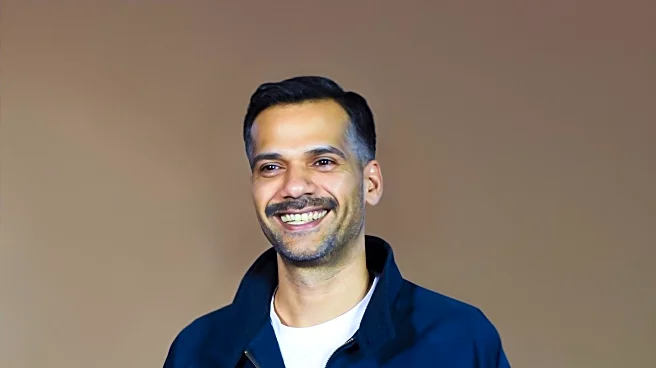What's Happening?
A Moroccan refugee named Aziz, who fled his home country after participating in political protests, has found refuge with a couple in Reading, Berkshire. Aziz was threatened with imprisonment if he returned to Morocco and sought asylum in the UK. After spending eight months in an asylum hotel in Croydon, he was granted refugee status in April and had three weeks to leave the hotel. Aziz was paired with Anita and Steve Rathgay through the charity Refugees at Home, which provides temporary housing for refugees. The Rathgays have hosted six refugees so far, offering them a place to reset and build a new life. Aziz expressed gratitude towards the couple, stating they saved his life. He has been offered a job at a hotel and plans to move out soon.
Why It's Important?
The story highlights the critical role of charitable organizations like Refugees at Home in providing support and stability to refugees in the UK. By offering temporary housing, these charities help refugees transition from asylum hotels to more permanent living situations, enabling them to integrate into society and find employment. The Rathgays' actions demonstrate the impact of community support in addressing the challenges faced by refugees, such as homelessness and unemployment. This case underscores the importance of social initiatives in aiding vulnerable populations and fostering inclusivity.
What's Next?
Aziz plans to move out soon, having been offered a job at a hotel. This step marks a significant transition towards independence and stability for him. The Rathgays continue to host refugees, providing a crucial service that helps individuals like Aziz rebuild their lives. The ongoing efforts of Refugees at Home and similar organizations are likely to remain vital in supporting refugees as they navigate the complexities of resettlement and integration into new communities.
Beyond the Headlines
The story sheds light on the broader ethical and social responsibilities of host countries in supporting refugees. It raises questions about the adequacy of government policies in addressing refugee needs and the reliance on charitable organizations to fill gaps in support. The Rathgays' experience illustrates the personal fulfillment and societal benefits that can arise from community involvement in refugee assistance.









